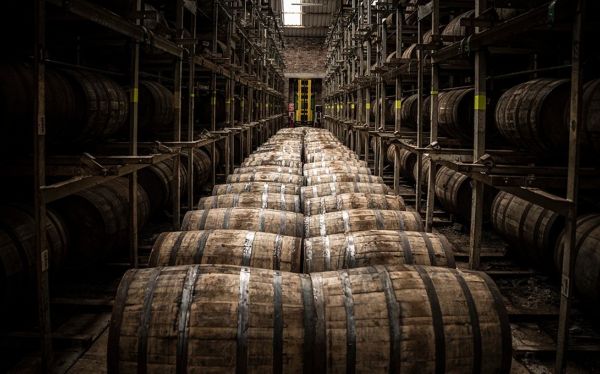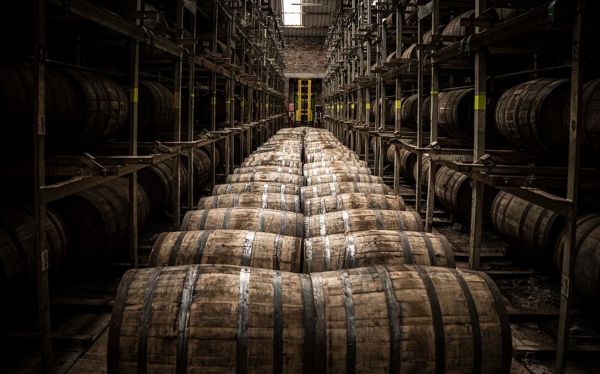Trouble Ahead ... For Some
The boom of new, stand-alone distilleries since 2000, has added immeasurably to the diversity of Scotch, and it is the same story in Ireland and the US. But in these tough times, not all will survive as Ian Fraser reports …
The future of the Scotch whisky industry may not be hanging in the balance, but the future of a number of recently-opened distilleries is. According to Alan Flower, MD of UK-based consultants – Interpath who advise struggling firms and handle insolvencies, there will be fewer Scotch whisky distilleries in operation in ten years' time. "I've worked in restructuring and advising stressed businesses for 30 years," he says, "but I had never worked in whisky until the last six months, since when I've been working on four assignments."

Post-financial crisis exuberance coupled with a rose-tinted view of the future market drove the opening of a rash of new distilleries across Scotland over the past decade. In total, 32 have opened since 2015, with 14 opening the previous decade. That total of 46 new Scotch whisky distilleries since the turn of the Millennium is more than double the 17 that opened in the entire 20th century.
A common error made by these new ventures was to assume that the whisky sector would remain as buoyant as it was when they were writing their business plans, says Flower. Although in fairness, none could have predicted the ‘perfect storm' of negative factors in recent years – including Covid-19, the Ukraine war, soaring energy bills, higher raw material and labour costs, rising interest rates (which are especially bad news for new debt-financed distilleries), Trump's tariffs, plus the fact that emerging markets like China haven't really lived up to expectations so far.
The one bright spot on the horizon is India. Scotch Whisky Association CEO Mark Kent describes the UK's recent trade agreement with the country as a "once in a generation deal and a landmark moment for Scotch whisky" with the potential to boost exports to India by £1 billion over the next five years.
Another common weakness among startups, says Flower, is their excessive focus on product – the liquid – at the expense of other aspects of the business including sales and distribution, which he says need to be planned for before as the product matures. "This has left a lot of immature businesses hungry for cash," he says.

The biggest single issue facing the industry is oversupply. "Most producers and wider categories have over-produced based on unrealistic future growth scenarios," says Martin Purves of Commercial Spirits Intelligence. Rabobank drinks industry analyst Bourcard Nesin says a surfeit of product is a "universal" problem in the drinks industry and could do "significant damage" to smaller premium brands.
Nesin told Spirits Business he expects to see "a lot of downward pressure on more niche, premium categories and craft spirits" which are "more product-forward and less brand-forward". He added: "There's no buyer for bad brands at the moment… the valuation of a smaller craft distillery or brand without scale, without strong growth, without excellent inventory, is getting dangerously close to zero."
The market dynamics are such that much of the stock that is entering the market today is actually worth less than its cost of production, says Flower, quoting prices as low as £4 a litre for new make spirit on the brokerage market. This is a big issue for recent startups, as they're effectively making a product which costs more to produce than it can immediately be sold for – which is why, he says, some distilleries are pausing or reining in production, as happened at Brown Forman's Glenglassaugh distillery.
Flower expects to see insolvencies among recent startups or mergers between smaller distillers – perhaps along similar lines to the combination of Inchdairnie Distillery and MacDuff International. One model would be for firms with strong brands to merge with ones with powerful sales and distribution networks. However Flower warns that M&A should not be seen as a "silver bullet", recommending struggling firms to address a range of issues – including those outlined in Interpath's recent report on the industry – to ensure they can keep their heads above water in more troubled times.

The picture in Ireland – where Mark Reynier's Waterford Distillery, founded in 2015, went into receivership in November 2024 – is broadly similar. Mark Degnan, MD of Interpath Ireland, who is also Waterford's appointed receiver, said: "Given the number of new distilleries in Ireland over the last ten years, and the challenges to scaling up, there may be an opportunity for a private-equity fund to acquire a second-tier distillery and then look to acquire smaller, more niche distilleries to add to their portfolio."
Reflecting on the state of the industry, Flower said: "It's still a very robust and resilient sector and all the established players will come through. It's just what happens to the less well-established ones and how far they are down the journey of making themselves sufficiently robust to see this out. And for me the thing – and it isn't just a whisky thing – is the earlier they recognise that they have a problem, the more options they will give themselves." He says firms that just bury their heads in the sand and hope things will get better are likely to suffer the most.
"Scotch whisky has been around for centuries and will come through," concludes Flower. "In ten years' time, we'll look back and the number of distilleries that are in operation will be smaller. There will be mergers. There will be distilleries that are mothballed. And there will unfortunately also be some insolvencies."

Ian Fraser is a financial journalist, a former business editor of Sunday Times Scotland, and author of Shredded: Inside RBS The Bank That Broke Britain.
